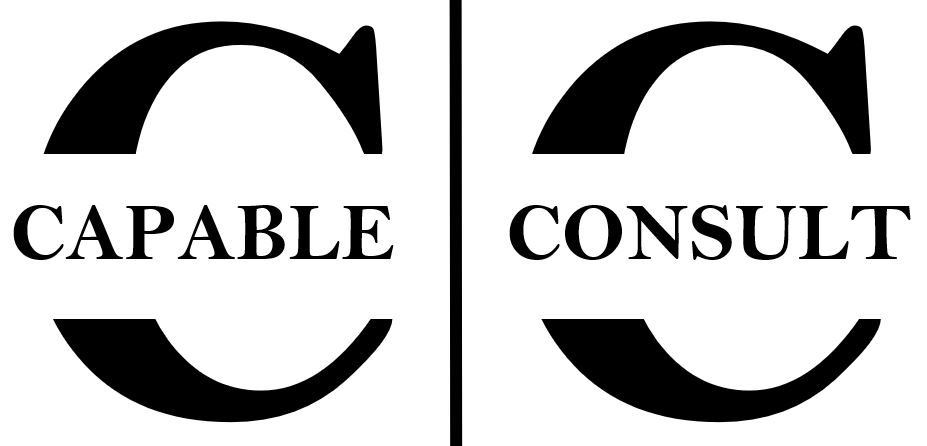We care for
Your people challenges
People are, along with the organisations they are part of, constantly challenged. They are expected to handle change like a boss, while juggling more work in less time, while remaining motivated. Yes, keep the Superman-vests coming, please. It is so easy to forget and so important not to, that a great employee experience is just as valuable as a customer experience. Some vital assets can you help your organisation and your people to stay focused on what matters and keep that employee retention up. After all, your people are what really makes (or breaks) your organisation.

Emotional intelligence
As change becomes more and more of a constant in our day-to-day work, emotional intelligence not only helps us to cope. It is a vital set of skills that allows us to focus on what really matters and to better understand and manage our own and others’ emotions.
Leadership
Depending on your teams and on the situation, leadership can mean leading, mentoring, teaching, facilitating, and many more things. It is vital to get a view on your managers’ leadership styles, because their impact on teams is key for all people experiences, both inside and outside your company.


Stress
All controversy about burn-outs aside, we must all admit: stress is real. And the same way people can be sensitive to perceiving stress, people can also be susceptible to inducing it with others. It is crucial that your managers create a great “employee experience” and lower stress within their teams.
Emotional intelligence makes a difference
Our organisations are constantly challenged, and so are we. We are supposed to cope with a lot of change in very short time, preferably turning all the tumult into “positive learning experiences”.
On top of that, we’re supposed to do more with less – less tools, less actions, less time. Less talks too, if possible. Because during all of these one-to-ones or coffee breaks, we’re not actually working – while we were already behind on whatever needed to be done yesterday.
It’s a tunnel vision that’s unfortunate but widely integrated. While in fact, higher stress levels due to constant change make these meaningful, empathetic social interactions and relationships all the more important. They help us stay positive and have an open mind, allowing us see the bigger picture and to think in a solution-oriented instead of problem-focused manner.
EQ is just as important as IQ
Emotional intelligence is not just about being empathetic from time to time. It refers to an entire skill set that allows for you to better capture and understand emotions – both from others as well as our own – and to manage and use them in an intelligent way.
Your emotional intelligence plays a vital role in your capacity of self-awareness, leadership and resilience. It seems only evident to consider emotional intelligence just as key for success as any other form of intelligence .
Emotional intelligence (EI)
More than a myth
Academics have been divided for decades now on the question whether Emotional Intelligence comes from nature, nurture or both.
What they do agree on, and what is most relevant for us, is this: Emotional intelligence (EQ) can be observed and it can be measured in behaviour. It is not just a myth. It is a real-deal asset that allows for people to be greater, stronger and more resilient. It’s a set of skills that people can put into practice and benefit from.
Our triple-A leadership profiler measures how people translate their emotional intelligence into their day-to-day behaviour.
manage yours & others’
Stress
“Stress is real. And it’s not just about the hours you put in. A lot around stress is about experience. “
Anonymous
In 2019, the WHO added burn-out to the list of International Classification of Diseases as a “syndrome” that results from “chronic workplace stress that has not been successfully managed”. This is interesting in two ways. One, it’s a syndrome caused by something else. Meaning: taking some time off from a toxic workplace, only to return to it after a few weeks without having anything changed at the roots, will not magically solve anything. And two, it’s caused by stress in the workplace. Regardless of the taboos and controversy existing around burn-outs, we must face this: stress is real.
Stress is not just about the hours people put in every week, assuming less hours will lower their level of stress and vice versa. People who feel inspired in their job and appreciated by colleagues and superiors experience significantly less stress at work. Stress on the other hand tends to dampen good decision-making, strategy and problem solving.
And yes, people can be sensitive to perceiving stress from their workplace. But people can also be susceptible to causing stress with their colleagues. And this is a vital insight to take into account, especially for leaders and managers. Because this means they can play a crucial role in the support of their colleagues, creating a healthy environment and a great “employee experience”, with lower stress levels as only one of the many benefits.
Our Stressbarometer measures the risk of inducing stress by a certain approach in leadership styles, and gives concrete working points in where to improve. Our tailor-made coaching can take your people to the next level if they themselves feel the need of some extra support.
About coaches and bosses
Leadership
“Chances are, for every ten supervisors you’ve had throughout your career you’d probably want to work for only two or three of them again, and that’s if you’re lucky!”
Shannon Mullen O’Keefe and Adam Hickman in The Hard Truth About Soft Skills In The Workplace
It’s true, engagement of many employees is determined for no less than 70% by their manager. And if you think about it, it’s no surprise: surely you too know someone who has left their job – or stayed at it – because of their manager. Truth be told, it is not an easy task, whether your teams are cross-functional or department-oriented, self-steering or not at all, or mixture of all of those. We call it leadership, while in fact a wide variety of skills such as mentoring, facilitating, teaching, problem solving, and many more are required, depending on each situation. And like we said before: what people experience within your organisation shines through in what your customers, partners, and others experience too. So your leaders, managers or coaches, whatever they’re named, have high stakes in doing a great job.
Getting a holistic view on your manager’s personal leadership styles is crucial. Each of these styles has their own strong points and pitfalls, risks on awakening stress with other or potential to motivate them. Our Leadership tool maps these styles in terms of Regulating versus Facilitating leadership, starting from the 3 A’s that are vital in every leadership role:
- Accountability – giving trust, creating involvement and (helping to) attain objectives within a good atmosphere
- Agility – being flexible, being able to manage change together with the team and problem solving, as well as learning (fast) from mistakes made
- Authenticity – being a leader in and with the team, applying we positive human approach and valorising other people and their efforts
